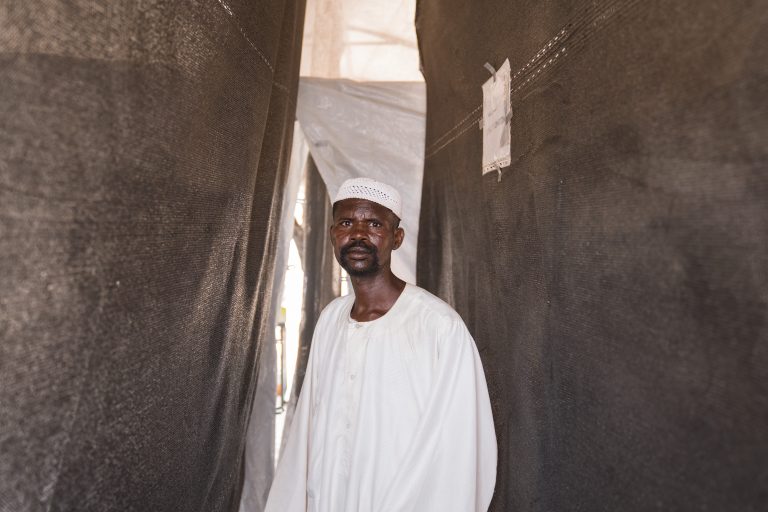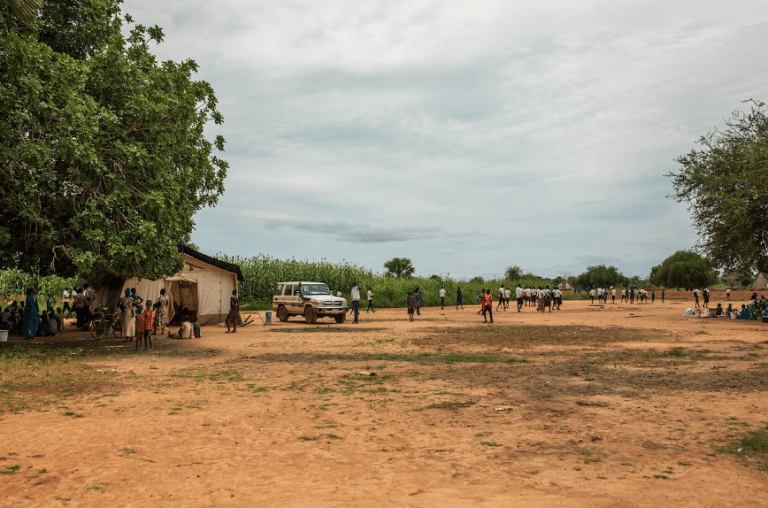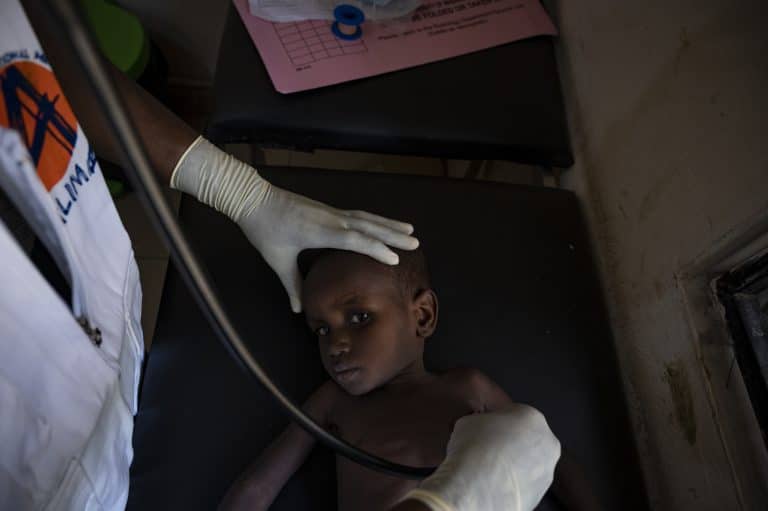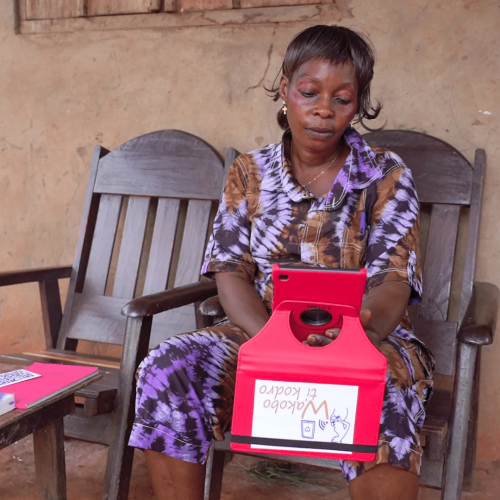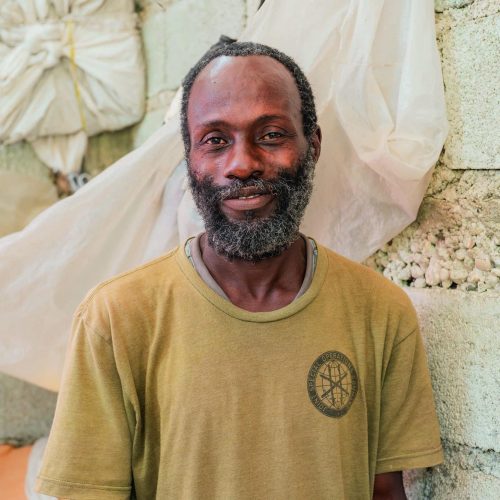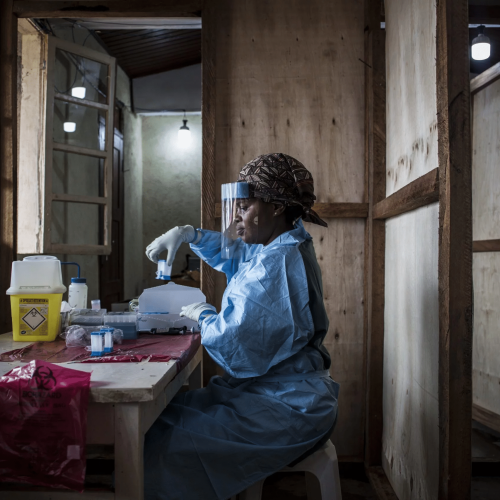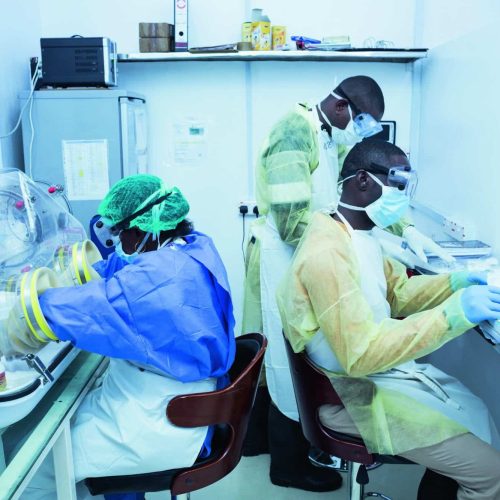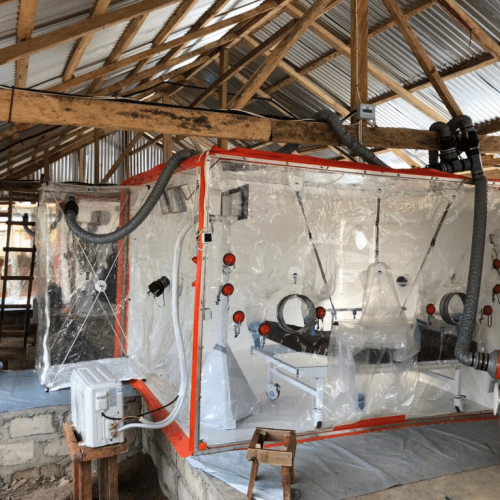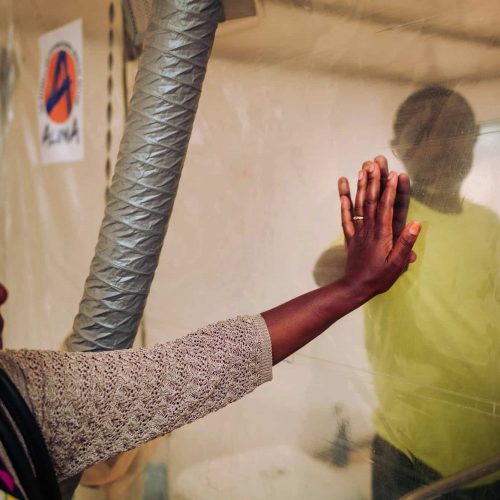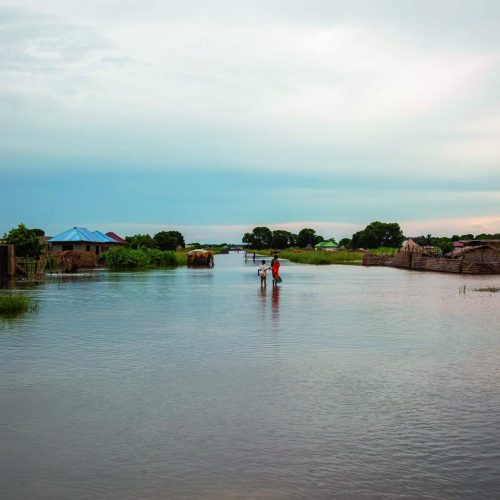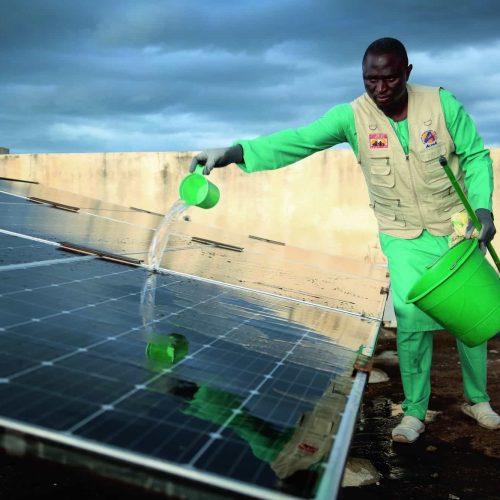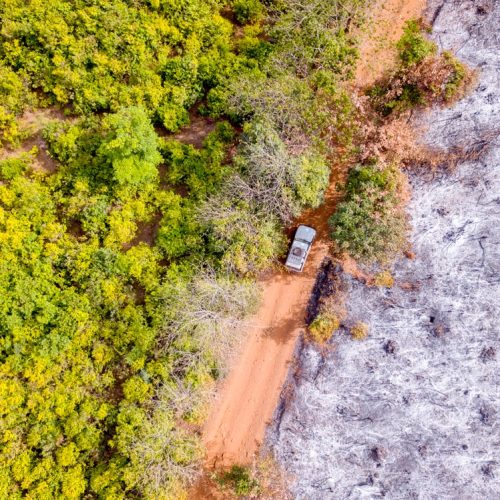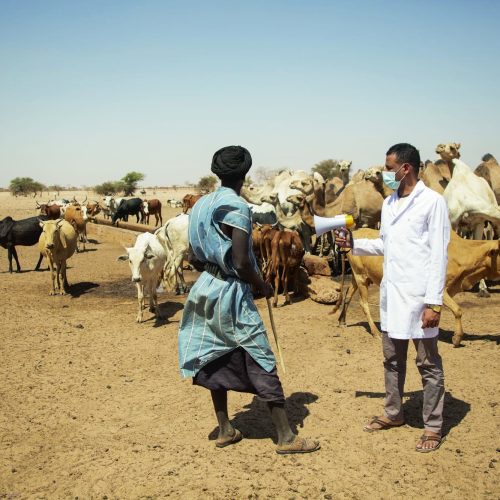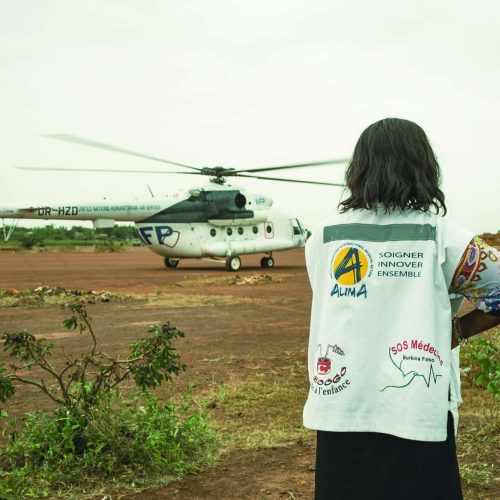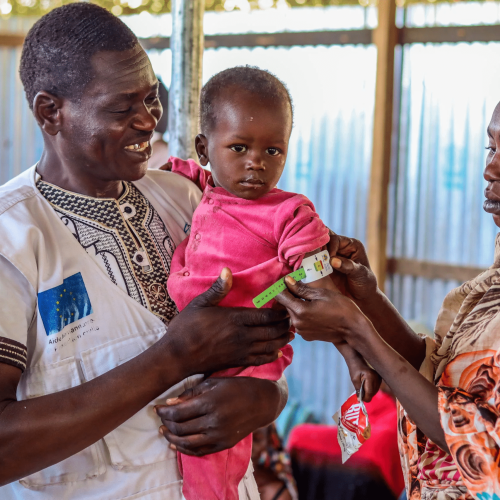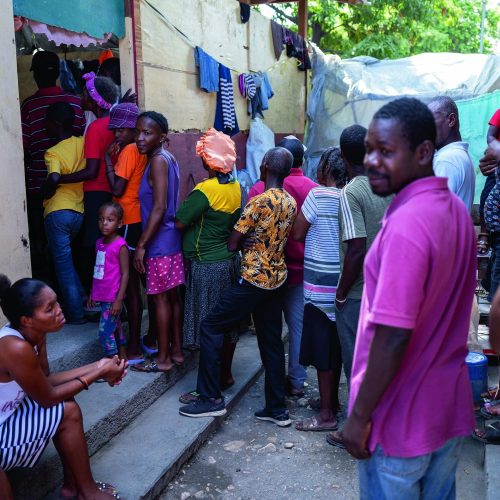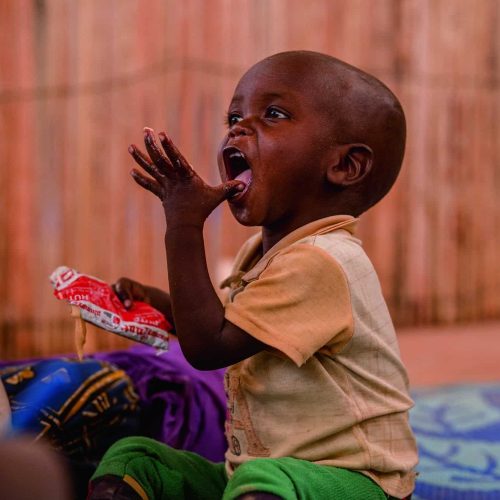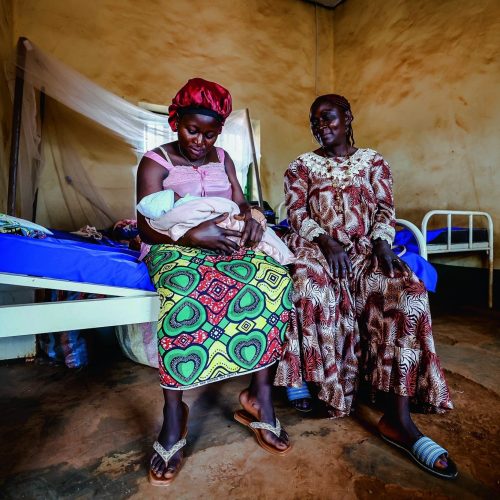At the beginning of the pandemic, the situation faced by health systems in Asia and then Europe made us fear for the worst in Africa. The rising number of new cases of COVID-19 in Dakar worried the medical community. As soon as the first cases were reported in the country, Fann University Hospital, supported by ALIMA (The Alliance for International Medical Action) in patient care, and infection protection and control measures, was ready to receive patients.
As the weeks went by, the trend in the country changed from mainly imported cases to community-based transmission. ALIMA decided to redirect its activities towards local communities. As the outbreaks of the virus were spreading, ALIMA’s emergency response team, in collaboration with the Emergency Health Operations Center, visited health centers in Saint-Louis, Louga, Thies and Touba, to assess their capacity to manage COVID-19 cases.
One hospital and 10 suburban health posts
Starting in June, ALIMA concentrated its efforts in the suburbs of Dakar. In the Yeumbeul health district, 20 kilometers north of the capital, transmission was intense. The ALIMA team offered its support to the hospital and 10 health posts in the district. For several weeks, ALIMA supported the district’s COVID-19 treatment center, trained hospital staff on infection prevention and control, and rehabilitated essential facilities in an epidemic context: triage areas at the entrance to the health structures, waste areas with an incinerator and dedicated laundries.
Adama Traoré, technical supervisor at Yeumbeul Hospital, explains the operation of the waste incinerator of the COVID-19 treatment center, installed within the hospital thanks to the support of ALIMA. Senegal, September 10, 2020.
By September 25, after 15 weeks of operation, 123 COVID-19 positive patients had been treated in the COVID-19 treatment center at Yeumbeul Hospital. At the end of September, as it was no longer admitting patients, it closed its doors, as the Ministry of Health preferred to treat simple cases at home. Serious cases are referred to the COVID-19 treatment centers in Dakar.
However, community transmission has not stopped. “The number of cases detected is decreasing, but the data tend to show that the virus continues to circulate in the community,” said Dr. Zéphirin Muzuri, medical coordinator at ALIMA in Senegal. “There are many asymptomatic cases; the virus is less visible. But as it circulates, it continues to be a danger to those most vulnerable to COVID-19.”
Building on community trust
Awareness campaigns have been conducted by the Senegalese Ministry of Health since the beginning of the epidemic, through radio and television spots between the most listened to or watched programs in the country. “At the beginning of the pandemic, the discourse was very focused on the vulnerability of certain people: the elderly and those with comorbidities,” recalls Papa Ndiaga Cissé, anthropologist and team leader for the community involvement component of ALIMA’s Senegal mission. “The problem is that it shifts responsibility for the spread of the virus away from other members of the community.”
In a country where most cases are asymptomatic or mild, where those affected by the virus are hidden or even invisible, what is the point of making an effort? “We need to reach young people so that they feel concerned about COVID-19, too,” says the specialist.
Training on social mapping by Health Promotion Supervisor Mamadou Thierno Sall with Community Relay Aliou Diouf at the Pacotille health post, south of Yeumbeul. October 2020, Senegal.
Since early September, with a huge map under his arm and colored pencils in his jacket pocket, the anthropologist has been studying the community dynamics of 147 neighborhoods in the Yeumbeul health district. Little by little, meeting after meeting, with his colleagues, they have identified and met those who are respected figures in their communities.
These people are the “leaders”: the 147 neighborhood chiefs, but also religious leaders (imams and dahiras, representatives of brotherhoods). “I even call them ‘champions’ because the communities place trust in them. They recognize their leadership,” explains Papa Ndiaga Cissé. They can also be health professionals, often female-heads of ‘tontines’ (community microcredit banks, which are widespread in Africa), sports coaches, presidents of associations, etc.
“This bond of trust is more powerful than any advertisement,” says the anthropologist. This is why ALIMA places it at the heart of its new strategy to identify, inform, protect and treat the most vulnerable populations facing the virus. Leaders are in the best position to facilitate the identification of the most vulnerable people. They are better listened to when it comes to getting closer to health structures. Better equipped when it comes to raising awareness. Leaders become true operators to co-construct solutions adapted to a population they know well. Out of 324,000 inhabitants of the 147 districts targeted by ALIMA so far, 30,000 people have been identified as vulnerable to the virus (over age 50).
The main lines of ALIMA’s new strategy in Senegal are therefore set out: it is above all community-based. But the lines are being written with those who will benefit from it. Co-constructing with the community will be the best way to be more effective in the long term.
—————————————————–
The ALIMA project to respond to COVID-19 in Senegal receives financial support from the Agence Française de Développement (AFD) and the Sanofi Espoir Foundation.
Cover photo: © ALIMA


